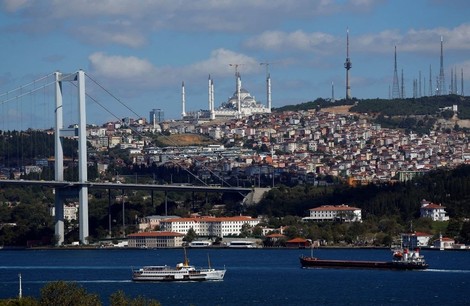Your podcast discovery platform
Curious minds select the most fascinating podcasts from around the world. Discover hand-piqd audio recommendations on your favorite topics.

piqer for: Globalization and politics Global finds
Sezin Öney, originally from Turkey, is based in Budapest and Istanbul. She her journalism career as a foreign news reporter in 1999 and she turned into political analysis as a columnist since 2007. Her interest in her main academic subject area of populism was sparked almost decade ago; and now she focuses specifically on populist leadership, and populism in Turkey and Hungary. She studied international relations, nationalism, international law, Jewish history, comparative politics and discourse analysis across Europe.
Are ‘Global Cities’ An Antidote To Populism And Nationalism?
Whilst Turkey is falling in all indexes concerning democracy and governance, Istanbul was ranked 25th in the "2017 Global Cities Index". This index evaluates cities in terms of flows of labor, goods and ideas with regards to human capital and business activity. The index portrayed Istanbul as a city fostering "cultural diversity, information sharing and political engagement".
Nora Fisher Onar, who just edited a volume called, "Istanbul: Living with Difference in a Global City", describes the city as follows:
Istanbul’s pluralism is hard to miss. Walking through its bustling streets, silhouettes of ancient monuments are interspersed with spires of new skyscrapers, mosques, highways and shopping malls. The people speeding past are similarly varied, each claiming multiple identities and reducible to no single adjective. Turks, Kurds and Uzbeks share sidewalks with Senegalese, Qataris and Syrians. Seventh-generation Istabulites live in this city with migrants, expatriates and refugees. Sharing spaces, if not lives, the myriad citizens are connected by a common urbanity, even as many grapple with the challenges of exile.
Fisher Onar's perspective on Istanbul as a "pluralistic center" despite the political turmoil that Turkey has been facing, is not unique to this particular city. It is rather a part of the general theory she and other scholars contributing to this aforementioned volume propose. In her words:
Hope, then, may be found in the city. As medieval German law recognized, “city air makes free” — a principle which authorized freedom for renegade serfs who survived in the city for a year and a day. At the dawn of the 21st century, and across the global South’s growing cityscapes, city air will continue to offer hope for diversity and empowerment.
Hope is always welcome in these rather grim times we are facing globally in terms of politics. Is the bustling metropolis the antidote to populist and nationalist waves? Time will tell.
